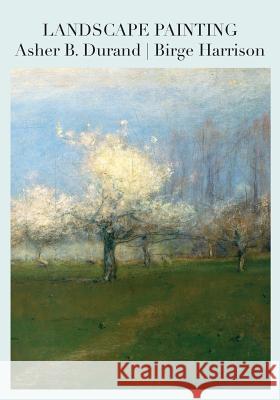Landscape Painting » książka
Landscape Painting
ISBN-13: 9780980045451 / Angielski / Miękka / 2013 / 148 str.
In 1855, Asher B. Durand, a founder of the National Academy of Design and a leading member of the Hudson River School, wrote a series of articles for his son's art magazine, The Crayon. The nine articles, Letters on Landscape Painting, outlined Durand's thoughts on learning how to paint landscapes. They are considered by many to be the textbook for the Hudson River School. In the early 1900s, Birge Harrison, a prominent figure in the American Tonalist movement and a director of the landscape school of the Art Students League, gave a series of lectures to the students at the League's summer school in Woodstock, New York. He later compiled those twenty-one lectures into the book, Landscape Painting. Then, as now, the book was considered to be a standard work for students. This volume presents Durand's and Harrison's writings together for the first time. We will never know what each might have thought of their words being combined in such a way, however, over the years hundreds of budding landscape painters and professionals alike have found value in these writings. It only seems fitting that the textbooks of two of America's great landscape painting movements be made available in a single work.
In 1855, Asher B. Durand, a founder of the National Academy of Design and a leading member of the Hudson River School, wrote a series of articles for his sons art magazine, The Crayon. The nine articles, Letters on Landscape Painting, outlined Durands thoughts on learning how to paint landscapes. They are considered by many to be the textbook for the Hudson River School. In the early 1900s, Birge Harrison, a prominent figure in the American Tonalist movement and a director of the landscape school of the Art Students League, gave a series of lectures to the students at the Leagues summer school in Woodstock, New York. He later compiled those twenty-one lectures into the book, Landscape Painting. Then, as now, the book was considered to be a standard work for students. This volume presents Durands and Harrisons writings together for the first time. We will never know what each might have thought of their words being combined in such a way, however, over the years hundreds of budding landscape painters and professionals alike have found value in these writings. It only seems fitting that the textbooks of two of Americas great landscape painting movements be made available in a single work.











